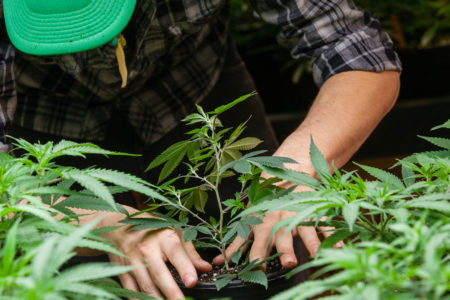
As the first G7 country to legalize cannabis, Canada is becoming a point of reference for the global cannabis industry on production, distribution and retail models. The rest of the world is watching closely. However, far more educating about cannabis needs to be done. Consumers still don’t know enough about cannabis, the laws that govern it, and how to use it safely. Cannabis education is urgently needed, and is critical to the growth of the industry here and abroad.
In the lead-up to legalization, little was done to educate Canadians. More than a year later, many Canadians still don’t know what they don’t know. There are the basics – sativa vs. indica plant types, for example. But most people do not know how many “tokes” – inhales – from a cannabis cigarette it takes before they’re over the roadside limit. Some people don’t even know that a roadside limit for cannabis exists.
We know this because in a survey of more than 4,500 Canadians, more than 70 percent did not know the roadside limit. Eighty percent didn’t know that they can be over 40 times the limit within two hours of smoking cannabis with THC. The limit for roadside testing is 25 nanograms per millilitre of saliva.
The survey was one of seven anonymous online surveys carried out in 2019 by the cannabis education company Responsible Cannabis Use (RCU) as it set out assess respondents’ awareness of all things cannabis. (The full survey data are proprietary and are not being released publicly.) They covered regional cannabis laws, familiarity of cannabis products and their effects, cannabis on the road and the roadside limits, as well as the rights of employees and employers regarding cannabis at work. In total, more than 49,000 anonymous Canadians 18 and older participated.
Too many Canadians, it turns out, would be hard pressed to answer questions like:
- Where can you smoke cannabis in your city or province?
- Where should you store cannabis in the car while on the road?
- Can you travel with cannabis on domestic or international flights?
In Ontario, it’s legal to smoke cannabis anywhere cigarettes can be smoked, and cannabis must be stored in the trunk of a vehicle while on the road. However, these cannabis laws are different in other regions and provinces.
(If you’re wondering how much you know, you can take RCU’s quizzes here.)
The cannabis industry is in its infancy, and many Canadians will find themselves in uncharted territory. For instance, when Air Canada flight AC125 from Toronto to Vancouver was diverted to Seattle in November, passengers nervously wondered what could happen to anyone carrying cannabis. Cannabis in the workplace is similarly confusing. What do employees need to do if a co-worker is consuming cannabis at work?
The importance of having educational information about laws, limits and effects is even more critical as “Cannabis 2.0” products – vapes, edibles, topicals and extracts – are starting to become available. Unlike joints, these products have never been widely available, making their effects and experiences unknown to many consumers and policy-makers.
Lack of public education is a significant risk for the cannabis industry. It could lead to irresponsible actions by consumers, perpetuating a negative stigma among non-consumers. This could cause a downward spiral, with policy-makers introducing more stringent policies for the legal market, making it easier for the illicit market to thrive.
Who should be educated on cannabis?
Of the nearly 3,000 anonymous people managers surveyed about cannabis at work, 47 percent did not know that employees with medical cannabis authorization who have approval from their doctor and their employer can consume cannabis at work. Of the 7,000 employees surveyed, 30 percent did not know that they are required to immediately report a co-worker who might be impaired at work. This is alarming because an estimated 13 percent (about 514,000) of Canadian workers who are cannabis users consumed cannabis before or during work, according to Statistics Canada’s Q1 2019 report.
We all spend time on the road, and most of us spend time at work. All Canadians need to be educated on the realities of cannabis, laws and safety tips so that cannabis consumers can enjoy the product responsibility, non-consumers can feel safe about cannabis in their midst, and to support the future of the industry.
However, regulatory inconsistencies across provinces create room for confusion among consumers and non-consumers. For example, Manitoba has restricted consumption of cannabis edibles, allowing it only at home, Quebec recently raised the minimum age for purchase from 18 to 21 years old, and some municipalities have opted out of having cannabis retail stores altogether. Some of these policies will help ensure public safety, while others, like limiting access to legal products, will further bolster the illicit cannabis market.
Where should citizens receive cannabis education?
Considering that adults spend a significant part of their days, weeks and years at work, the workplace is an ideal venue for cannabis education. In one anonymous survey from RCU focusing on cannabis at work, an overwhelming 80 percent of the total 15,000 employees and people managers surveyed told RCU they would like to receive education around cannabis in the workplace from their employer. Even if this cannabis education is focused around cannabis activity in the workplace, this is still an important starting point for reducing the stigma and encouraging cannabis awareness in other areas of cannabis use, like safe driving, travel and so on.
Another channel for education is the point of sale. Educating consumers during the discovery and purchase process can be extremely effective because the audience is targeted and tuned in. More than two-thirds of Ontarians surveyed by RCU believe retailers should educate consumers at the point of sale – online and in-store.
What can policy-makers and the cannabis industry do?
Policy-makers can ensure that Canadians of age are effectively informed by recommending and mandating cannabis education at work and at point of sale.
While many employers have updated their impairment policies to include rules about cannabis at work, RCU’s surveys show that a policy alone is not enough: Canadians are simply not well-informed about cannabis products, their effects or signs of impairment. In other words, employers need to actively explain their policies to their workers.
The cannabis industry should be more proactive about education at the point of sale. If the private sector can lead the way with measurable educational programming, these efforts signal to the government that industry takes public health and safety seriously, which could encourage a more relaxed regulatory regime in the future.
Educating Canadians about cannabis is in everyone’s interest: informed consumers will make more responsible decisions, which will help the industry prosper. A prosperous industry will create more jobs and help battle the illicit market. Success on these fronts will continue to highlight Canada’s cannabis industry as a model for the global community.
This article is part of the The Making of a Cannabis Industry: Year One special feature.
Photo: Shutterstock, by Aleksandra Belinskaya.
Do you have something to say about the article you just read? Be part of the Policy Options discussion, and send in your own submission. Here is a link on how to do it. | Souhaitez-vous réagir à cet article ? Joignez-vous aux débats d’Options politiques et soumettez-nous votre texte en suivant ces directives.








